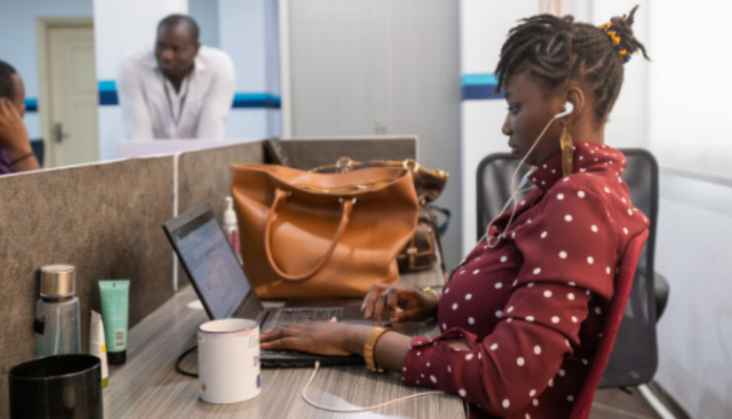
As a result of the pandemic, the amount of private equity funds raised for African start-ups declined by nearly 30% in 2020 – contrary to the trend of the last three years. However, according to Partech Africa’s latest annual report, African start-ups experienced increased growth last year.
According to the study, which takes into account private equity transactions of more than $200,000, $1.429bn was injected into the continent’s start-ups last year, compared with $2.020bn in 2019. This marks an almost 30% drop in investments.
On the other hand, the number of funding rounds increased from 158 to 359 in one year. This 44% growth is proof of private equity’s enduring interest in start-ups, despite the outbreak of the pandemic.
READ MORE Start-ups: which 7 African tech companies raised the most capital in 2019?
“The month-by-month analysis shows […] that the crisis has had no visible impact on the general activity of the ecosystem: in fact, each month in 2020 saw more deals concluded than the same month in 2019”, the authors of the report confirm.
An increasingly attractive continent
According to Partech’s figures, Africa also attracted more interest from investors in 2020, as their number (443) increased by 24% and 108 of them carried out two or more transactions. Five venture capital firms stand out for their involvement and dynamism: Egypt’s Algebra Ventures, the Dutch Development Bank, Japan’s Kepple Africa Ventures, the US’ Y Combinator and 500 Startups all participated in more than ten rounds of financing in 2020.
Nigeria continued to be the most attractive with $307m injected into its start-ups, just ahead of Kenya ($304m), Egypt ($269m), South Africa ($259m) and Ghana ($111m).
Quite varied in terms of sectors, Cairo saw the most transactions in 2020 compared to Accra, Lagos or Johannesburg where investments are clearly concentrated in fintech companies. Nairobi stands out in the agritech sphere.
However, fintech remains the most attractive sector for investors. It accounted for 26% of the cash flow ($93m), ahead of business services ($54m), e-commerce ($52m), health ($28m) and insurance ($7m).
Gaps to be bridged
There is still a significant gap between English-speaking and French-speaking areas. Within French-speaking ones, the leading trio is made up of Morocco, which attracted €11.1m of investment in 2020, ahead of Senegal (€8.6m) and Côte d’Ivoire (€6.5m).
READ MORE Senegal, Cameroon, Benin and Ghana: Meet Africa’s latest stars of the start-up world
Gender also remains a subject of inequality, as only 17% of the start-ups that received funds in 2020 were headed by women.
2020 was a strange year for African start-ups (theafricareport.com)


